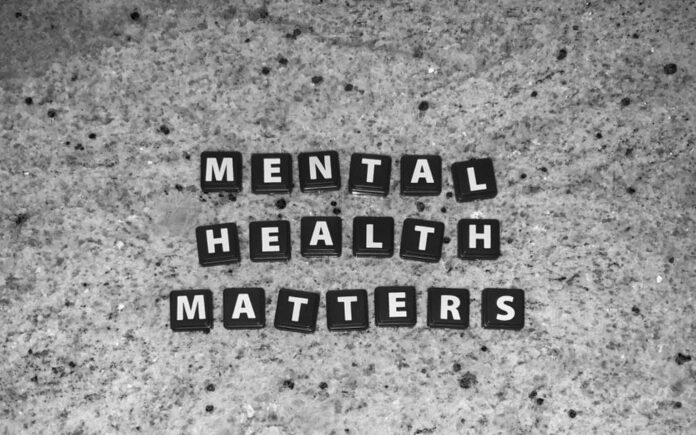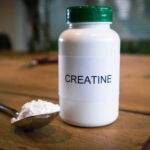Behavioral health refers to the study of your habits, biology and emotions and their effect on mental and physical wellness. It covers everything from how well you sleep at night to any addictions you might be suffering from.
Mental health studies a range of illnesses like depression and anxiety disorders; however, negative behaviors like self-harm or substance abuse do not always accompany various conditions, strictly staying in the mind. To learn more about the differences, read on.
Definitions and Differences
They can often be used interchangeably, but there’s a subtle distinction between them. Mental health is the study of mind-related medicine, disorders and treatment which focuses on one’s emotional wellbeing while behavioral health refers to relationships between behavior and overall well-being. Understanding this distinction will allow for proper care of any condition.
Behavioral health refers to the study of emotions, behaviors and biology as they relate to a person’s mental well-being, daily functioning and concept of self. Counselors, life coaches, psychologists or psychiatrists all qualify as professionals and can help individuals address depression, anxiety, eating disorders, addiction, stress or relationship problems.
Mental health refers to any illness or disorder affecting an individual’s mind, from depression and bipolar disorder to post-traumatic stress disorder and schizophrenia. Mental illnesses may result from genetics (source: https://ecmentalhealth.com/mental-and-behavioral-health) environmental factors or chemical imbalances within the brain. Symptoms range from sadness and low self-esteem to panic attacks and feelings of emptiness – with potentially serious physical consequences including high blood pressure, heart disease and diabetes as possible outcomes.
DSM-5 lists approximately 300 disorders. Depression, generalized anxiety disorder and bipolar disorder are the three most frequently occurring ones; their causes range from trauma, poor social support and drug or alcohol misuse to genetics or medical conditions such as diabetes or hypothyroidism.
They often go hand-in-hand, so it is crucial that both issues be treated simultaneously. Someone suffering from a condition may also struggle with eating disorders or substance abuse issues; therefore, all three issues need to be tackled simultaneously to improve quality of life for an individual. Therefore, working with a multidisciplinary team of behavioral health and medical professionals is essential.

Symptoms
They are inextricably intertwined. Behavioral healthcare encompasses habits, behaviors and actions which impact both one’s mental and physical wellness. Depression and anxiety often have direct adverse impacts on physical wellness. They may also be the root cause of other chronic health conditions like heart disease, diabetes or obesity.
Behavior health disorders typically manifest themselves through unhealthy behavior and can be affected by mental wellness conditions like depression and anxiety. Common signs include feelings of sadness or being overwhelmed by stress, difficulty sleeping or changes in appetite; while behavioral disorders may also negatively impact one’s mood by making them frequently irritable or angry.
Symptoms of behavioral health disorders can range from substance abuse, self-harm and addictive patterns like gambling or sexual addiction, all the way through to depression, bipolar disorder and schizophrenia – each having their own impactful impact on behavior.
Although it can be challenging to distinguish between expected behaviors and symptoms of mental illness, it’s vital that individuals know when it is necessary to seek professional assistance. If they experience feelings such as sadness, anxiety or depression that interfere with daily functioning or disrupt life as expected it’s time to see a therapist or counselor for advice.
Keep in mind that these fields are inextricably intertwined, often manifesting simultaneously in various cases – known as co-occurring disorders and quite prevalent.
Example: Someone experiencing depression often exhibits symptoms such as difficulty sleeping and irritability, leading them to engage in self-destructive behaviors such as binge eating or abusing drugs and alcohol to cope with their emotions. A therapist can provide talk therapy, cognitive behavioral therapy (which you can learn about here) and/or medication as ways of helping manage both their condition as well as problematic behaviors associated with depression.
Treatment
Mental and emotional wellness refers to an individual’s psychological and emotional well-being, including how they think, feel, interact with others and manage stress. On the other hand, behavioral health looks at an individual’s behavior and its effect on his/her mental and overall wellness.
Psychotherapy or counseling is one of the primary treatments available for all kinds of disorders, typically administered by licensed therapists either one-on-one or in group sessions. Counselors can offer family and marriage therapy, individual psychotherapy, art therapy and cognitive behavioral therapy (CBT), among other forms of counseling services. CBT helps people learn to change unhelpful patterns of thinking.
Other treatments for these disorders, including schizophrenia and depression, include medication and support groups. Medication may help restore balance to brain chemicals to alleviate symptoms associated with these conditions while support groups provide encouragement and guidance from peers dealing with similar challenges.
Behavioral health encompasses more than just mental wellbeing; it involves developing effective coping skills as a means of dealing with stressful events such as divorce or grief over loved one loss. Counseling and therapy may help develop these healthy coping mechanisms and avoid unhealthy behavior such as drinking excessively or substance abuse.

Prevention
Prevention strategies exist to address both of these issues, including education, lifestyle modifications, and treatment programs. The objective is to lower risk of disorders while shifting expected trajectories to less debilitating outcomes; research projects have been undertaken to assess their efficacy.
They differ substantially, with mental focusing on emotions and thoughts while behavioral looking at actions taken by an individual. Although those living with a mental illness typically exhibit negative behaviors like depression or insomnia, this doesn’t always lead to behavioral health issues; the latter occurs only if such destructive behavior persists over months or years. Therefore it is crucial to understand both types of health to ensure you receive the optimal care possible.
These conditions frequently co-occur, as depression often prompts individuals to use alcohol and/or drugs as self-medication. Therefore, both services and behavioral modification must often work hand-in-hand to treat both conditions simultaneously.
Although much has been accomplished to improve behavioral health, significant gaps remain due to the difficulty associated with diagnosing mental illness and limited funding available for prevention initiatives. There remains no clear distinction between psychology and behavioral medicine fields.
Read Also
- Why the Keto Diet Works for Some People—and Fails Dramatically for Others: An Ayurvedic Breakdown for Modern HealthcareThe keto diet has dominated weight-loss culture for years. For some people, it produces rapid fat loss, stable energy, and improved mental clarity. For others—especially those who gain weight easily—it leads to burnout, digestive distress, rebound weight gain, high cholesterol, and a metabolism that feels slower than before. Healthcare often frames this as a discipline… Read more: Why the Keto Diet Works for Some People—and Fails Dramatically for Others: An Ayurvedic Breakdown for Modern Healthcare
- How to Choose the Best Assisted Living Facility for SeniorsAre you looking for the right assisted living facility for a senior loved one? Choosing a place can feel overwhelming. There are many factors to consider, from care services to the environment. Safety, comfort, and social opportunities play important roles in daily life. Each senior has unique needs and preferences that must be met. Understanding… Read more: How to Choose the Best Assisted Living Facility for Seniors
- Burn Smart, Not Hard; Shape Burn: Clean Protein for Weight ManagementYou want to feel light, strong, and confident. You don’t want crash diets or fake promises. You need a plan that works with your body, not against it. That’s where Shape Burn comes in. You can burn fat without losing strength. You can eat better and stay full. You can manage weight in a way… Read more: Burn Smart, Not Hard; Shape Burn: Clean Protein for Weight Management
- Creatine Basics: How Much Is 5g, How Much Water You Need, and Whether Pills or Powder Work BetterIf you’ve ever walked into a supplement aisle or scrolled through fitness TikTok, you’ve probably seen people talking about creatine — usually with a shaker bottle in hand and promises of better workouts and faster gains. And honestly? They’re not wrong. Creatine is one of the most researched and effective supplements for muscle strength, recovery,… Read more: Creatine Basics: How Much Is 5g, How Much Water You Need, and Whether Pills or Powder Work Better
- Understanding Breast Cancer in Men: Key Facts and SymptomsBreast cancer is often thought of as a disease that only affects women. However, men can develop it too. Although it is less common, early detection and awareness are important. Read on to learn key facts, symptoms, and ways men can take action to protect their health. How Common Is Breast Cancer in Men? Breast… Read more: Understanding Breast Cancer in Men: Key Facts and Symptoms






